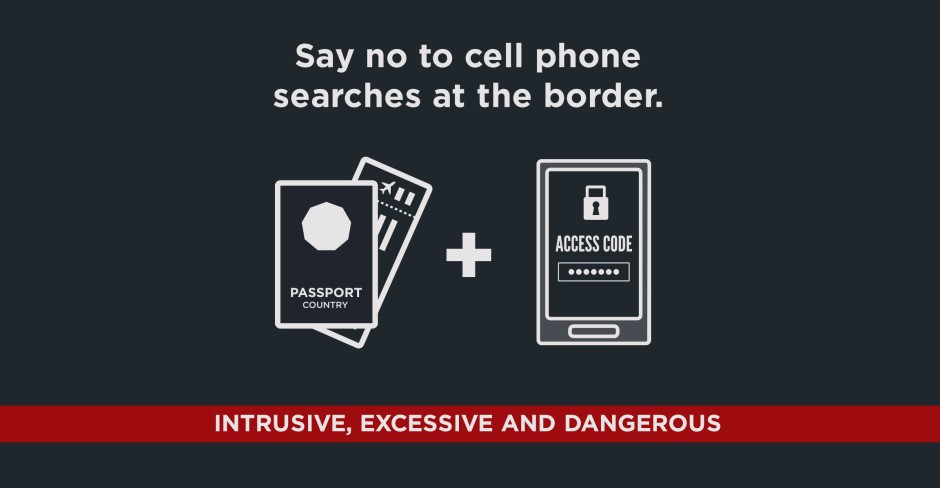This Holiday Season Border Agents Have Your Privacy On Their Wish List
A concerning rise in phone searches this year comes to show Canadian and U.S. law essentially see no difference between searching your suitcase and searching your cell phone or laptop.
It’s that special time of the year, where thousands upon thousands of people cross the Canada–United States border to spend time with loved ones over the holidays.
But alongside the usual stress of the holidays, a new worry is cropping up for many people making the trip this year: do I need to worry about bringing my electronics across the border with me?
Our phones and laptops can contain our private messages to loved ones, photos, browsing history, social media posts, as well as sensitive financial and medical information.
The sheer volume of information is far beyond anything that would ever fit in even the most overstuffed suitcase, not to mention how much more private most people consider this type of information to be. And yet, Canadian and U.S. law essentially see no difference between searching your suitcase and searching your cell phone or laptop.
Most laws dealing with border searches were created long before our digital devices were capable of containing practically our entire personal lives on them. It’s ridiculous to imagine cramming thousands of personal photos and printouts of intimate messages into your luggage, but that’s what many of us are bringing through airports on a phone that fits in a pocket.
For those traveling south of the border, the laws are fairly clear: U.S. border agents can, without the need for any suspicion of any kind, demand you hand over and unlock your phone.
You have the right to refuse to hand over your device — but if you’re not a U.S. citizen, they can refuse your entry to the country if you do so.
Over on Canadian soil, the picture is a little less clear. Officers may still search your devices without a warrant, but Canadian courts have not yet ruled on whether a person can be compelled to hand over device passwords.
In both countries, searches are meant to be limited to what is stored locally on the device — meaning information stored on the cloud is off-limits. Officers should turn off data and wifi before searching devices.
So what’s a privacy conscious traveller to do?
The Internet is awash with tips on how to reduce the risk, like:
Use a ‘burner’ phone: a spare, ‘clean’ phone that doesn’t contain any of your personal information.
Delete apps, photos or conversation threads that you don’t want a border agent thumbing through, or store them in the cloud instead of on your phone.
Don’t bring a phone at all — pick up a cheap phone and local SIM at your destination.
But for the average holiday traveller, awash with the stress of the season and using email and texts to coordinate flights, hotel bookings and meetups with family, these measures can feel like they’re just too much trouble.
While knowing your rights and taking precautions to protect your private data are sadly our best options right now, the best way forward lies in challenging these outdated laws.



 Take action now!
Take action now!
 Sign up to be in the loop
Sign up to be in the loop
 Donate to support our work
Donate to support our work